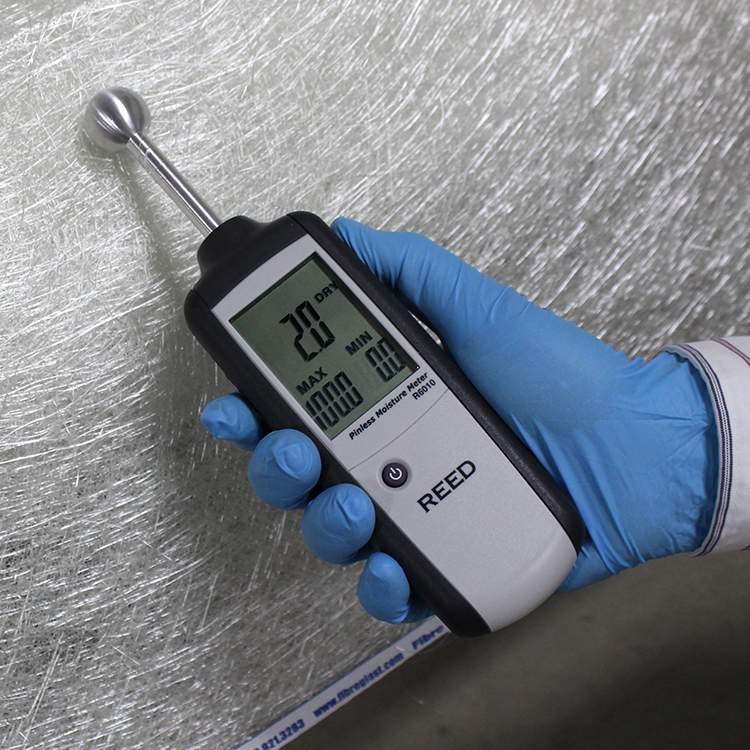Moisture Meter Reviews: Contrasting the Best Models for Expert and DIY Use
The Ultimate Overview to Wetness Meters: A Comprehensive Summary and How They Can Conserve You Money
Dampness meters serve as crucial devices in discovering and keeping track of moisture web content in materials, assisting in stopping pricey damages and making sure the quality of products. Recognizing the nuances of various kinds of moisture meters, their applications, and the potential cost-saving benefits they use can be a game-changer for experts and services alike.
Kinds Of Dampness Meters
One usual kind is the pin-type moisture meter, which determines the electric resistance between two pins placed into a material. Pinless moisture meters, on the various other hand, usage electro-magnetic sensor plates to scan a larger location without creating damages to the material's surface.

Moreover, there are likewise specialty dampness meters made for certain materials like grain, hay, or soil. These meters offer exact dampness analyses customized to the one-of-a-kind residential or commercial properties of the material being evaluated. Infrared moisture meters gauge the thermal buildings of a material to establish its moisture material non-invasively, making them useful for applications where pin or pinless meters might not appropriate. Understanding the different kinds of dampness meters offered can help markets pick the most appropriate device for their details moisture dimension requirements.

Benefits of Making Use Of Wetness Meters
Wetness meters offer very useful benefits in precisely examining and keeping an eye on moisture degrees in varied materials and environments. One of the primary advantages of making use of dampness meters is the avoidance of potential damages created by excess wetness.
Additionally, using dampness meters can bring about boosted energy efficiency. By recognizing areas with high moisture degrees, such as leakages or poor insulation, changes can be made to enhance energy preservation and decrease energy expenses. In agricultural setups, moisture meters play a crucial function in optimizing plant yields by making it possible for farmers to check soil dampness levels and make educated irrigation choices. In general, the advantages of utilizing moisture meters cover throughout different sectors, supplying cost-efficient solutions and advertising better high quality control practices.
How to Select the Right Dampness Meter
Selecting the proper dampness meter involves taking into consideration key elements such as product compatibility, dimension range, and calibration precision. When picking a moisture meter, it's important to ensure that the meter is appropriate for the certain product you will certainly be screening. Various materials have varying electrical residential or commercial properties that can impact dampness analyses, so picking a meter made for your product is essential for precise outcomes. Furthermore, take into consideration the dimension array of the dampness meter. Guarantee that the meter can detect wetness levels within the range required for your applications. Calibration accuracy is another crucial element to remember. Select a moisture meter with trustworthy calibration to make sure specific and regular analyses. Some meters might need periodic calibration modifications, so understanding the calibration procedure is essential. By meticulously assessing these aspects, you can select a wetness meter that meets your demands and gives exact wetness measurements for your tasks.
Proper Strategies for Moisture Meter Use

Price Financial Savings Via Dampness Meter Applications
Exactly how can the calculated usage of dampness meters lead to considerable cost financial savings across different industries? In the farming market, moisture meters help in determining the optimum time for harvesting plants, preventing excess or over-drying moisture that can affect the final product's quality.
Similarly, in construction, wetness meters help protect against expensive problems by finding moisture degrees in structure materials, such as timber or concrete, which can bring about structural concerns if not attended to promptly. By determining trouble locations at an early stage, service providers can take corrective procedures to stay clear of comprehensive fixings or replacements, ultimately saving time and cash.
Furthermore, in the food processing market, dampness meters are important for keeping an eye on item quality and guaranteeing compliance with security laws. By properly measuring moisture material in food, makers can protect against spoilage, maintain freshness, and lower waste, causing significant cost savings. Generally, the critical application of dampness meters is a valuable investment that can lead to substantial expense reductions and enhanced effectiveness throughout different markets.
Verdict
In verdict, moisture meters are important tools for measuring and spotting moisture levels in various materials. By making use of the right moisture meter and following proper methods, users can efficiently stop expensive problems triggered by excess dampness. Purchasing a quality moisture meter can cause considerable cost savings over time by recognizing prospective problems at an early stage and allowing prompt removal. Inevitably, wetness meters are important instruments for keeping the honesty and durability of materials and structures.
Wetness meters offer as vital tools in identifying and keeping an eye on moisture content in products, aiding in stopping pricey damages and making certain the quality of items. Infrared wetness meters gauge the thermal buildings of a product to determine its wetness material non-invasively, making them helpful for applications where pin or see this site pinless meters might not be ideal.Moisture meters provide invaluable advantages in precisely keeping an eye on and analyzing dampness levels in diverse materials and atmospheres. In agricultural setups, dampness meters play a crucial role in enhancing crop yields by allowing farmers to check dirt dampness degrees and make informed watering choices.In verdict, dampness meters are valuable tools for spotting and determining wetness levels in various materials.